AFP denies it was ordered by government to raid Labor offices
LABOR has come out swinging about night raids in the middle of an election campaign. Malcolm Turnbull is in the firing line.
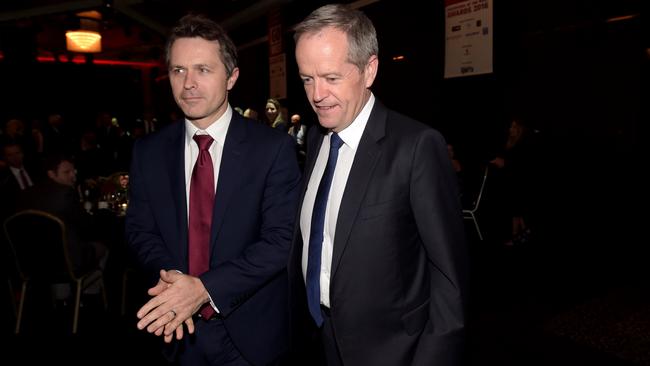
THE Prime Minister says he had nothing to do with raids on the offices and homes of key Labor figures overnight.
The AFP spent five hours searching a Melbourne electorate office of opposition defence spokesman Stephen Conroy, who was communications minister from late 2007 to mid-2013.
They spent even longer at the Melbourne home of a former adviser Andy Byrne, who now works for opposition communications spokesman Jason Clare.
Documents pertaining to NBN Co staff over the alleged leaking of internal documents were seized but are now subject to parliamentary privilege.
The AFP addressed rumours the raids were orchestrated by the government to coincide with the election campaign.
“This investigation has been undertaken independent of government, and decisions regarding yesterday’s activity were made by the AFP alone,” the federal police said in a statement this morning.
Labor said the PM must address the issue of his involvement.
“We need to know the government’s full involvement in this matter,” shadow attorney-general Mark Dreyfus said.
“What did the Prime Minister or his ministers or his staff have to do with the commencement of this investigation?
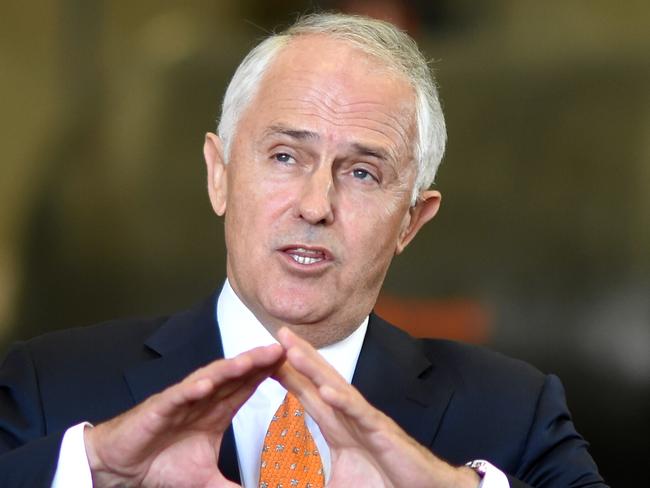
“Our interest is how this was prompted by government ministers. ... Those concerns cannot help but arise when you’ve got (raids) in the second week of an election campaign.”
At a press conference, Mr Turnbull said he first heard of the investigation on Thursday.
“Let me just make this observation: We are dealing here with a matter of law enforcement. We’re dealing here with a matter of the Australian Federal Police. As you’ve heard from ... the AFP acts independently of government and so it should.
The PM said Mr Dreyfus was making “dramatic statements” unbefitting of somebody who is seeking to be attorney-general.
“The fact of the matter is the AFP acts independently of government. Mr Dreyfus knows that. And what he has sought to do is to try to, everything he has said to suggest the AFP has been acting other than independently, he knows is wrong.
“He knows they act independently of government. They always have done, They always will do.”
AFP Commissioner Andrew Colvin addressed the media on Friday morning. He said the AFP always acts independently.
“There has been no influence on the AFP in the conduct of this investigation,” he said.
“Let me be clear — the government was first advised after operational activity commenced.”
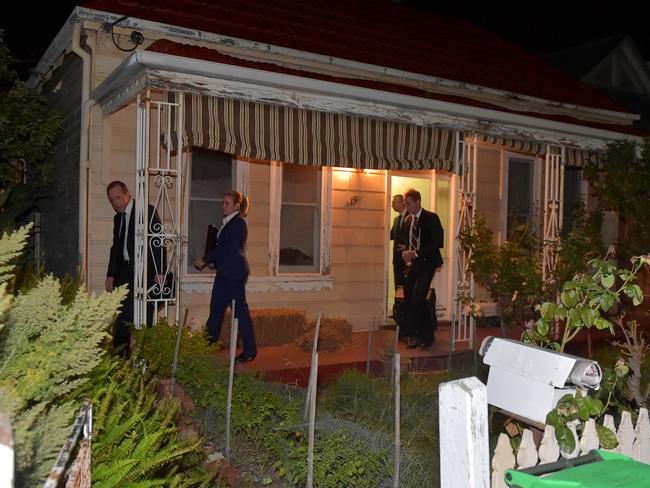
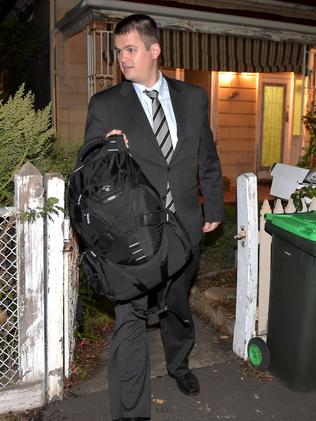
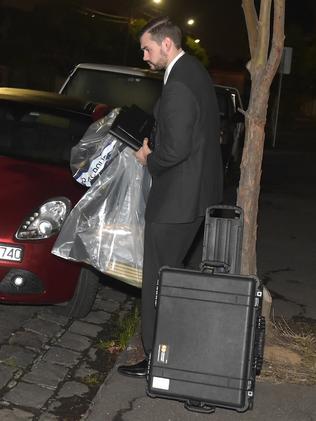
Labor said today Mr Conroy had papers which carried parliamentary privilege as they involved committee inquiries into the NBN Co.
The Opposition is pulling short of accusing the AFP of carrying out a political operation although it is saying the police should have been “more cautious” during an election campaign.
But the Opposition is demanding Prime Minister Malcolm Turnbull reveal whether he pressured NBN — a government-owned company — to demand the investigation of the leak.
It is understood the investigation relates to stories which appeared in Fairfax Media in late February quoting confidential internal NBN documents highlighting long delays in its broadband rollout.
Labor frontbencher Anthony Albanese said police spent all night at Mr Byrne’s home.
“What that means is it has been quite an extraordinary raid over an extensive time in extraordinary circumstances during an election campaign,” Mr Albanese told Channel 9.
And Labor is blaming the Prime Minister.
Mr Dreyfus said the police would have even aware of the sensitive timing of the raids.
“They can’t be oblivious of external events,” said Mr Dreyfus on ABC radio.
“We are in an election campaign, we are in the second week of an eight-week election campaign. The police must have known that.
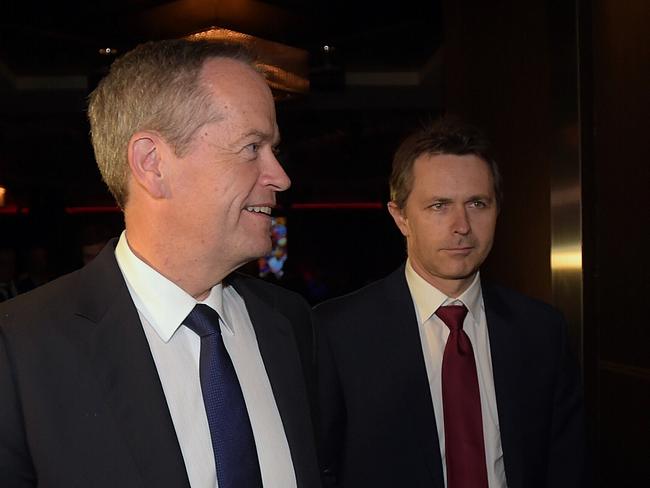
“They should have thought more, been more cautious about what the appearance of this might have been because there are obvious political connotations.”
The offices of politicians are protected areas because of the risk police searches could be perceived as political harassment. And there are few more sensitive times in the political calendar than an election campaign.
The obvious exceptions are when corruption or major crime are suspected. Labor would dispute that a leaked document which embarrassed corporate executives amounted to a major crime, particularly when there has been no investigation of apparent national security cabinet leaks. The AFP said in a statement the investigation had started in December after a request from NBN Co, the broadband company.
It said it was investigating allegations of “the unauthorised disclosure of Commonwealth information”.
“These allegations were the subject of a referral from the National Broadband Network Company (NBN Co), received by the AFP on December 9, 2015. This investigation has been ongoing since that date,” AFP said in a statement.
The statement said the searches conducted in East Melbourne, Mr Conroy’s office, and Brunswick, the home of Mr Byrne, were part of a “phased approach that the AFP has undertaken regarding this investigation”.
“The next phase of this investigation involves the examination and analysis of material collected during these search warrants,” said the AFP.
“The Federal Government and Opposition were appropriately notified and advised of operational activity regarding this matter after it commenced yesterday.
“The AFP has received assistance from the NBN Co in this investigation, which included facilitating interviews with a number of NBN Co employees as part of yesterday’s activity.
“This investigation remains ongoing, and the AFP will provide further detail when it is appropriate to do.”
The AFP confirmed on Friday morning the documents are now subject to parliamentary privilege.
“Those documents are now sealed and we don’t have access to them anymore,” Mr Colvin said.



